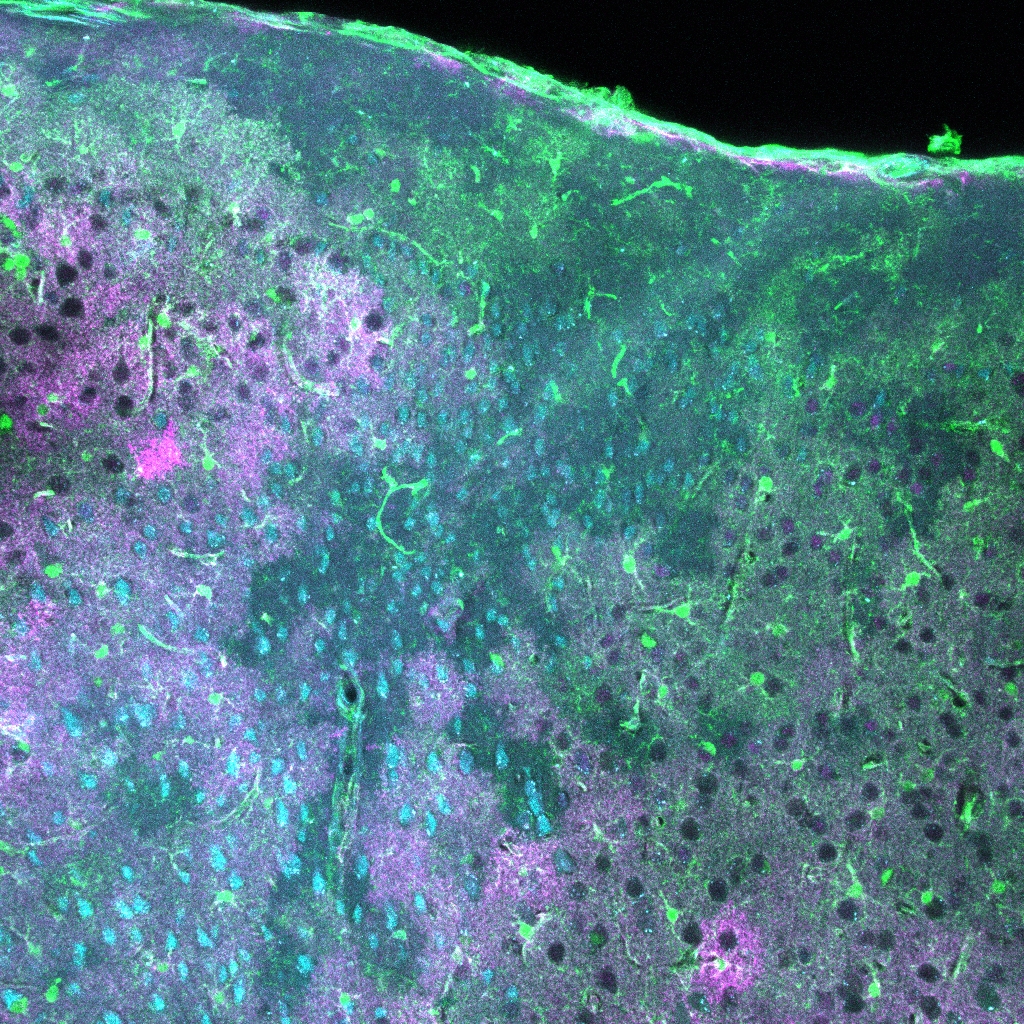Kijana George's Dissertation Defense (3/14/2022): The Role of Blood-Borne Factors in Triggering Atypical Astrocytes

Dissertation Defense: The Role of Blood-Borne Factors in Triggering Atypical Astrocytes
Kijana George
Graduate Student, Virginia Tech Translational Biology, Medicine, and Health
Graduate Research Assistant, Center for Neurobiology, Fralin Biomedical Research Institute at VTC
March 14, 2022 at 10:00 a.m.
About this Dissertation
Mild traumatic brain injury (mTBI)/ concussion accounts for 70-90% of all reported TBI cases in the United States and can cause long-term neurological outcomes that negatively impact quality of life. Previous studies revealed that increased blood-brain barrier (BBB) leakage is correlated with poor neurological outcomes after mTBI, yet the biological mechanisms linking BBB damage to the onset of neurological deficits after mTBI are not well understood. Previously, it was found that astrocytes lose expression of homeostatic proteins after mTBI, characterizing the changes in astrocytic protein expression as an “atypical astrocyte response.” Yet, the upstream mechanisms that induce this atypical astrocyte response after mTBI have yet to be elucidated. In models of more severe TBI, exposure to blood-borne factors triggers astrogliosis via upregulation in markers, such as glial fibrillary acidic protein (GFAP), but how exposure to blood-borne factors affects astrocyte protein expression in the context of mTBI is not well understood. Therefore, it was hypothesized that mTBI-induced BBB damage causes atypical astrocytes via exposure to blood-borne factors. To test this hypothesis, George and the research team used a mTBI mouse model, two-photon microscopy, an endothelial cell-specific genetic ablation model, and serum-free primary astrocyte cultures. Here, the lab found that mTBI causes BBB damage through the loss of proteins involved in maintaining the BBB’s physical and metabolic barriers, and BBB damage is sustained long-term after injury. George and the research team demonstrated that leakage of blood-borne factors is sufficient to trigger atypical astrocytes, and plasma exposure triggers a similar response in vitro. Overall, these findings suggest that mTBI induces long-term BBB damage, and exposure to blood-borne factors triggers the loss of key homeostatic astrocytic proteins involved in maintaining healthy neuronal function.

More About the Candidate and Project
Education
Virginia Tech Translational Biology, Medicine, and Health, Ph.D. Candidate
Wake Forest University, B.S., Biology with Chemistry Minor
Training
Graduate Research Assistant, Center for Neurobiology
Mentor
Stefanie Robel, Ph.D., Associate Professor, Department of Cell, Developmental, and Integrative Biology, University of Alabama at Birmingham
Committee Members
- Michelle Olsen, Ph.D., Associate Professor and Director of Graduate Studies, School of Neuroscience, College of Science, Virginia Tech
- Matthew Buczynski, Ph.D., Assistant Professor, School of Neuroscience, College of Science, Virginia Tech
- Robert Gourdie, Ph.D., Commonwealth Research Commercialization Fund Eminent Scholar in Heart Reparative Medicine Research and Director, Center for Vascular and Heart Research, Fralin Biomedical Research Institute at VTC
Honors
- 2021 TBMH Student of the Year (Leadership)
- 1st Place in Biomedical Innovation Pitch Competition
- Phi Sigma National Biological Honors Society
- Recipient of NINDS Diversity Supplement
Presentations
Oral:
- 2021 Glial Trainee Symposium
- 2021 School of Neuroscience Retreat
Posters:
- 2021 Annual Society for Neurochemistry
- 2021 Cold Spring Harbor Virtual Conference
- Central Virginia Chapter of School of Neuroscience
Publications
Kijana K. George & Benjamin P. Heithoff, Alex Shandra, and Stefanie Robel. (2021). Mild traumatic brain injury/ concussion initiates an atypical astrocyte response caused by blood-brain barrier dysfunction. Journal of Neurotrauma. Doi: 10.1089/neu.2021.0204.
Heithoff, B.P., George, K. K., Phares, A.N., Zuidhoek, I.A., Munoz-Ballester, C., Robel, S. (2020). Astrocytes are necessary for blood-brain barrier maintenance in the adult mouse brain. GLIA. doi: https://doi.org/10.1101/2020.03.16.993691.
Michael J. Zeitz, Patrick J. Calhoun, Carissa C. James, Thomas Taetzsch, Kijana K. George, Stefanie Robel, Gregorio Valdez, James W. Smyth (2019). Dynamic UTR Usage Regulates Alternative Translation to Modulate Gap Junction Formation during Stress and Aging. Cell Reports. doi: 10.1016/j.celrep.2019.04.114.
Oleksii Shandra, Alexander Winemiller, Benjamin Heithoff, Carmen Munoz-Ballester, Kijana George, Michael Benko, Ivan Zuidhoek, Michelle Besser, Dallece Curley, G. Edwards III, Anroux Mey, Alexys Harrington, Jeremy Kitchen, and Stefanie Robel. (2018). Repetitive Diffuse Mild Traumatic Brain Injury Causes an Atypical Astrocyte Response and Spontaneous Recurrent Seizures. Journal of Neuroscience, doi: 10.1523/JNEUROSCI.1067-18.2018.
- Graduate Student Representative for FBRI Diversity and Inclusion Advisory Group
- TBMH Peer Mentor


